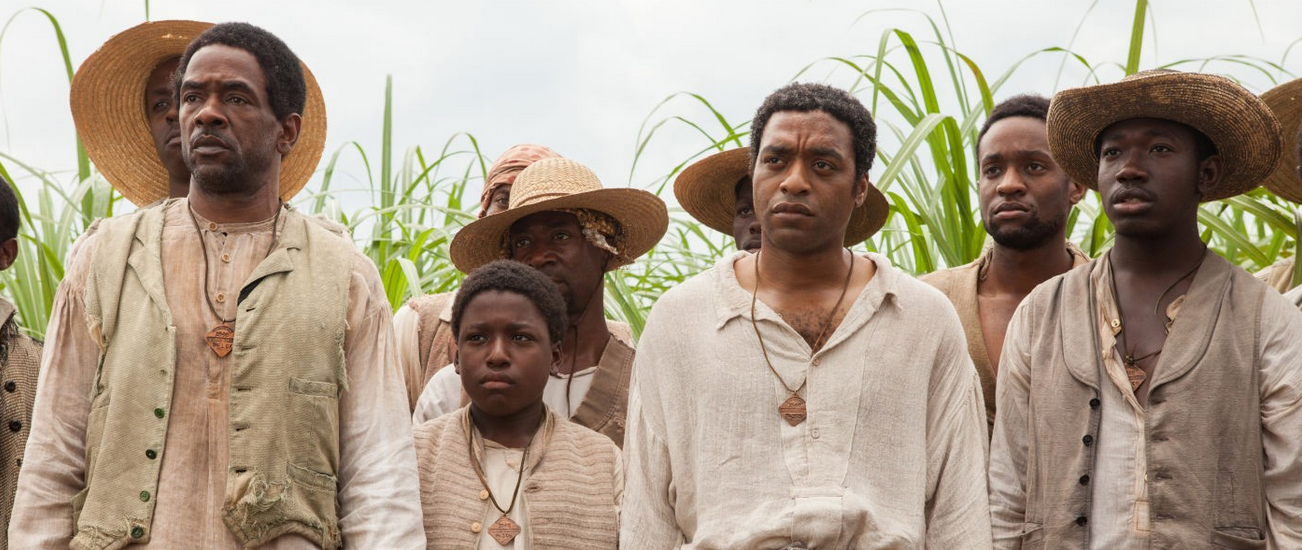
[Editor’s Note: In honor of Black History Month, we’re doing a five-part series this week examining race and the Church. This article is adapted from the article “Chasing the Dream” from RELEVANT’s Nov/Dec 2013 print issue. Click here to read the rest of the articles in the series as we post them this week]
If you’re at all interested in pop culture, you’ve probably been hearing a lot of buzz about Steve McQueen’s slavery epic, 12 Years a Slave.
The film has already won a slew of awards—from BAFTAs to a Gold Globe—and is nominated for no less than nine Oscars.
It’s a safe bet that the film will win at least a few of those, but even if it doesn’t, 12 Years a Slave has undoubtedly brought back up an important, though often glossed over, part of American history. It unflinchingly shows harsh realities of our past that make it incredibly hard to watch, but impossible to ignore.
By the time you’ve completed watching the staggering, true tale of Solomon Northup—a free black man in the pre-Civil War American North who was kidnapped, taken from his family and sold into slavery for 12 years—you’ll be shaken to your very core.
McQueen’s epic has a strong claim to being one of the few definitive works of art on America’s history of slavery, and it packs an emotional punch entirely unlike any film in recent memory.
McQueen is a fastidious man, short on patience, but given to lengthy pauses while he thinks of the precise word. He dismisses the Oscar talk the way you might wave away a fly (“that’s not why I do any of this”), but takes a long pause to consider how his film could change America’s ongoing conversation on race.
“I hope people are more receptive,” he finally says. “People who are interested in looking at the past want to go to the future. The abolition of slavery happened 150 years ago. In historic terms, it’s quite recent.”
Michael Fassbender, who portrays the most sadistic of Northup’s three masters in the film, has little patience for the oft-heard notion that it is time for America to forget about its horrific history with slavery.
“We’ve seen so many films about the Holocaust—and rightly so—but not many films about this period of history,” he says. (And he’s right. Prior to 2012’s Django Unchained, you have to go back to 1977’s Roots miniseries for a serious treatment of the subject.)
“There’s not much to say besides ‘it happened,’” Fassbender says. “This is our people. This is what our history is. Why would we try and forget it? It’s important. We should know what we’re capable of doing.”
A Continuing Problem
There’s no doubt America’s history with race is still affecting our country today. Forty-five percent of Americans say the country has made a lot of progress toward racial equality in the 50 years since the Civil Rights Act of 1964, according to a Pew Research Center poll. Yet, 49 percent of Americans agree a lot more needs to be done.
12 Years a Slave came at the end of a year marked (or better, marred) by racial tension: by celebrity chef Paula Deen admitting under oath that she has used the N-word, by immediate assumptions about the race of the bombers responsible for three deaths and more than 260 injuries at the Boston Marathon, by tweets labeling the first Miss America of Indian descent as a terrorist and, of course, by the unfolding story of Trayvon Martin.
The Martin/Zimmerman verdict, which saw strong divisions of opinion mainly along racial lines, was perhaps the best example of why King’s conversation about race still has a long way to go.
Dharius Daniels, a board member of the National Association of Evangelicals and pastor of the predominantly black Kingdom Church in Ewing, N.J., says the case was “a mirror that could show the country not just how much or how little we’ve progressed, but where—in terms of now, in terms of this point in history—our efforts and our focus and our attention needs to be.”
Things such as the Zimmerman verdict reflect that “we don’t know each other as well as we think we do,” he says. They bring tension, not necessarily among people who are racist or prejudiced, but among people who don’t understand how those different from them interpret certain things, who aren’t aware of historical patterns, he says. They aren’t aware of issues like bruises—issues that if touched, elicit what seems like an overreaction.
We often jump to conclusions instead of asking questions and listening to the whole story, he says.
“I think if we change that step and really become students of each other’s narratives and ask questions about why people perceive certain things in a certain way instead of jumping to judgment, then I think we’ll be better equipped to have more diversity in local churches.”
Race in Church
The numbers show that the vast majority of American churches still lack diversity. It’s a deep-seated issue that has far-reaching roots in religion’s ugly history of perpetuating racism.
In the time of slavery, slave masters would use religion as a tool for controlling slaves. This is something 12 Years a Slave is not shy about. Fassbender’s character, Edwin Epps, is well-versed in Scripture, and quotes it to keep slaves in line.
Fassbender (who was raised Catholic) is well aware of how easily religion can be used as a tool of manipulation. “People have used religion in ways to control groups of people,” he says. “Religion is a powerful force. It depends who decides to manipulate that, in whatever form—good or evil.”
“I think the film is showing what [religion] is, how it was used for good, how it was used for bad, but everyone can recognize the overall power of that,” says Chiwetel Ejiofor, who plays the titular slave, Solomon Northup, with soulful dedication.
Past wrongs have certainly influenced the way the American Church functions in regards to race, but Daniels has hope that with continuing conversation seeking reconciliation and understanding, the Church can work toward unity.
He has been intentional about creating a diverse staff at Kingdom Church, he says. The purpose isn’t necessarily to draw different people to the church, but to bring different perspectives to the table, he says, stressing the importance of honesty and candid conversation in learning more about people who are different than us.
Ejiofor echoes that idea of the importance of conversation about America’s past and present, and he hopes 12 Years a Slave can help bring the conversation forward again.
“It’s never a bad time to look at human respect and, by extension, human dignity,” he says. “The overall story [of the film] is a gift from Solomon to reflect on where we are. We’re aware people are trying to put us into little categories, and as we approach those things with antagonism, we don’t get anything. That attitude has gotten us nowhere. It has cost a lot, in fact. By looking at history, we can enter into debates in the modern day.






















